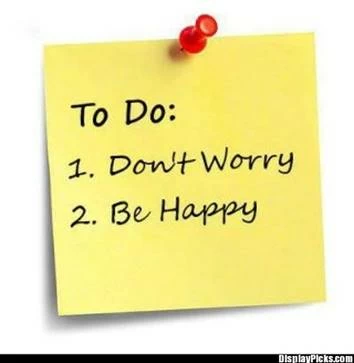
When will this all end? When will life be normal again? Last March, when we entered a two-week Minnesota Stay at Home Order, we never imagined the impact this pandemic would have on our lives. Tired of wearing masks, longing for hugs from family, missing small pleasures like eating in a restaurant, we can’t help but wish for everything to go back to the way it was prior to hearing the word COVID.
Like it or not, we must accept the fact that “normal” is now defined in new ways. Standing 6-feet apart and washing our hands numerous times a day no longer seems strange. Even wearing a mask feels quite natural. Despite adapting to our “new normal”, as we look ahead to the late fall and winter months, there will be feelings of uncertainty and worry. Now is the time to be proactive! Make a plan to take control of what you can in your life. Be intentional about caring for yourself and others. Most importantly, don’t let COVID control your happiness.
Ask yourself the following five questions every day…
- Who am I connecting with?
Being with people will help ward off isolation, loneliness, and depression. Even the introverts among us need regular social contact. Maintain a safe distance and wear your mask correctly when spending time with others.
Establish a routine to regularly connect with those who are important to you, whether face-to-face visits, a daily phone call with a family member, or weekly video chats with friends. Find ways to reach out to others who may be feeling alone and isolated.
- How am I taking care of my body and mind?
Now is the time to take care of your body the best you can. How you eat, sleep, and exercise is important for your general health and wellness. Maintain a regular routine of activity, meals, and bedtime. Movement, nature, fresh air, and sunshine are good medicine for your mental health so get outdoors when you can or sit by a window for at least 10 minutes a day. Feed your soul by connecting with art, music, literature, or spiritual practices.
- What am I doing well? What am I creating or learning?
Focus on what you can control, including your thoughts and behavior. Find purpose in every day and work to accomplish something, big or small. Staying active, engaged, and informed will help you remain positive and feeling good about yourself.
Think outside yourself and be a positive light in the lives of others. Model a peaceful, joyful, optimistic attitude and let happiness be more contagious than the virus!
- What am I grateful for?
Gratitude is a celebration of the good things around us. Take time every day to make a mental or written list of at least two things you are thankful for. Being mindful of the things we appreciate in ourselves, our lives, and in others, opens our hearts to the positive rather than the negative.
- What am I looking forward to?
Instead of longing for life to return to “normal”, figure out what is most important to you in this moment and focus on it. Take pleasure in the little things in life that we often take for granted. Hold on to hope and a vision that every day has good in it. And remember, each day we are one day closer to the end of the pandemic!
At RosePointe, we encourage our residents to use these ideas to determine how to live life in ways that are positive and productive. With care and compassion, our staff provides a safe and supportive environment. We also help by providing opportunities for socialization and physical, mental, and spiritual engagement.
When difficult or dark times are present, there is help!
Despite doing all you can to stay strong and be your best, there may be days when you feel panicked, disconnected, or cooped up. We worry when we don’t know, can’t predict, or are isolated. Too much worry can lead to anxiety and depression. If you find yourself in a state of excessive fear or worry, have a loss of motivation for the things you normally enjoy or experience profound emotional fatigue, professional help may be warranted. Talking to someone will help. Your Primary Care Physician will be able to refer you to a Mental Health professional within your health care system. Most likely your “office” visits can be done virtually or by phone. Reach out to a family member, friend, clergy, or care provider if you need help or guidance in setting up an appointment.
If you need immediate, free, and confidential support call:
Mental Health Minnesota Helpline: 1-800-862-1799
National Suicide Prevention Lifeline: 1-800-273-TALK (8255)
